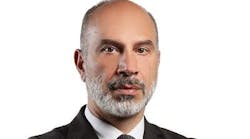Offshore staff
TEHRAN, Iran – Bijan Namdar Zanganeh is Iran’s new Petroleum Minister.
He was nominated by the recently elected president Hassan Rohani, having previously served for eight years in the administration of former president Mohammad Khatami.
Zanganeh has asked National Iranian Oil Co. (NIOC)’s managing director to draw up a plan to restoreIran’s oil production back to 2005 levels.
Iranian news service Shana quoted the views of various officials on the appointment. Ali Taheri-Motlaq, managing director of Iranian Offshore Engineering and Construction Co., said Zanganeh would promote the country’s international status.
For large contractors working on development projects for theSouth Pars gas field in the Persian Gulf, Taheri said, “a minister who supports and encourages them is important, particularly under conditions where the projects are facing finance problems. If contractors are considered as members of the oil family, the implementation of projects will be accelerated.”
Mahmoud Zirakchianzadeh, managing director of Iranian Offshore Oil Co., said. “The buyback contracts signed during the term in office of Mr. Zanganeh for thedevelopment of oil fields have so far earned the country tens of billions of dollars in profits.”
He cited development of the offshore Balal oil field under a $169-million buyback arrangement with Total, which has so far delivered more than 90 MMbbl of oil, and $9 billion in revenues.
Development of the offshore Doroud, Soroush, Norouz and Sirri fields were other successful buyback deals signed during Zanganeh’s tenure. Zirakchinazadeh added: “These contracts were lucrative given the time of their signature, their profitability and costs.
“But in recent years, the costs for the implementation of oil projects have increased sharply and one of the significant reasons is the lack of attention to the terms of contract signed for different reservoirs.”
Development of Soroush and Norouz started with an $800-million investment. To date the two fields have produced over 400 million barrels, he said, claiming that the same project would have cost around $5 billion under present circumstances.
A gas deal Iran signed with the United Arab Emirates during Zanganeh’s previous tenure drew criticism at the time from some quarters in Iran. But Zirakchianzadeh pointed out: “Over the past eight years, 29 bcf of gas in the [offshore] Salman gas field [shared with UAE] has been burned while Abu Dhabi has recovered 600 MMcf of gas from this field.
“More than 1 tcf of gas has moved from Iran to the UAE sector. We could have recovered 500 MMcf of gas from this field had we taken the appropriate measures.”
Zirakchianzadeh concluded: “Under the present [sanctions] conditions, the petroleum industry needs an experienced and influential manager who accepts risks... Given Zanganeh’s international status, we hope that the petroleum industry will regain its international status and the grounds will be prepared for attraction of domestic and foreign investors,” said the official.
8/19/2013




